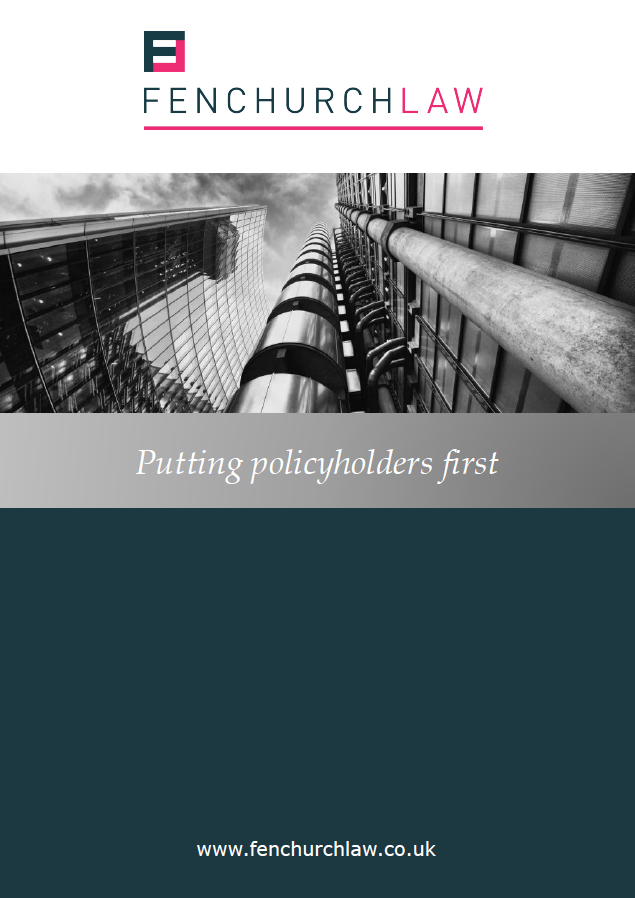
Even a Solicitors’ PI policy has its limits – Doorway Capital Limited v AIG
In this recent decision, the High Court considered whether a liability incurred by a solicitor under a factoring agreement was covered by its professional indemnity policy.
Background
In 2016, Doorway Capital Limited (“Doorway”) entered into a Receivable Funding Agreement (“the Agreement”) with Seth Lovis & Co Solicitors Ltd (“the Solicitors”). The relevant terms of the agreement were as follows:
- Doorway would provide funding to the Solicitors for use as working capital and to repay certain of their debts.
- The Solicitors would sell to Doorway its “Receivables” i.e., the Solicitors’ trading debts, together with the right to pursue those debts.
- the Solicitors would be appointed as Doorway’s agents to collect the Receivables.
- On receipt, the Solicitors would hold the Receivables in their client account on trust for Doorway, before paying the sums over to Doorway’s nominated account.
Doorway claimed that the Solicitors collected c. £2m worth of Receivables between 2017 and 2018 but in breach of the Agreement, only paid over a small portion of them. Doorway also asserted that the Solicitors breached fiduciary duties owed to Doorway.
As the Solicitors had entered into administration, Doorway claimed directly against the Solicitors’ professional indemnity insurers, AIG, under the Third Parties (Rights Against Insurers) Act 2010.
The Application
AIG applied for summary judgment, arguing that Doorway’s claim had no prospects of success. For the purposes of the application, AIG did not dispute that the Solicitors had breached the Agreement nor that they had breached fiduciary duties owed to Doorway.
There were two principal issues for the Court to decide:
- Did the liability that the Solicitors incurred to Doorway fall within the insuring clause of the policy (“the Policy”)?
- If so, did the ‘Debts and Trading Liabilities’ exclusion (“the Exclusion”) nevertheless apply?
The insuring clause
The insuring clause indemnified the Solicitors against “… civil liability to the extent that it arises from Private Legal Practice in connection with the Firm’s Practice.”
“Private Legal Practice” was defined as meaning “the provision of services in Private Practice as a solicitor … including, without limitation … (c) any Insured acting as a personal representative, trustee, attorney, notary, insolvency practitioner, or in any other role in conjunction with a Practice.
Doorway argued that the Solicitors’ services fell within the definition of “Private Legal Practice.” In particular, it said that acting as a trustee, without more, was sufficient. It also argued that (i) the Solicitors exercised “professional judgment in relation to the assessment of obligations which would arise in the course of the solicitor’s practice”, because they were required to determine whether, as a matter of law, a Receivable was payable to Doorway; and (ii) the holding of monies in their client account showed that they were providing a service in private practice.
The Judge, Mr Justice Butcher, paid short shrift to Doorway’s arguments. Any liabilities that the Solicitors owed to Doorway derived from Agreement alone; the fact that the Solicitors were holding monies on trust was merely “a part of the mechanism” of fulfilling their obligations under the Agreement. The Judge came to the same conclusion in respect of the Solicitors’ use of “legal judgment” to recover the Receivables, as well as the use of their client account – neither were for the provision of services in private practice as a solicitor.
In the circumstances, the liabilities incurred by the Solicitors did not arise from Private Legal practice, and were therefore not covered by the insuring clause. Accordingly, AIG’s application for summary judgment succeeded.
The Exclusion
Although it was not necessary for the Judge to decide this given his findings on the insuring clause, the Judge nevertheless also expressed a view on the applicability of the Exclusion.
The Exclusion stated: “The Insurer will have no liability to indemnify an insured in relation to any … legal liability assumed or accepted by an Insured under any contract or agreement for the supply to, or use by, the Insured of goods or services in the course of the Insured Firm’s Practice.”
In considering this issue, the Judge referred to the Supreme Court decision in Impact Funding Solutions Limited v AIG Europe Insurance Ltd [2016] UKSC 57. As with the present case, Impact Funding concerned a commercial agreement between a firm of solicitors and a third-party funder, and required to court to decide whether services conducted in connection with that agreement were covered (or, in the circumstances, excluded) under the solicitor’s PI policy. The policy contained an exclusion for “breach by any Insured of terms of any contract or arrangement for the supply to, or use by, any Insured of goods or services in the course of providing legal services.” By a majority of 4 to 1, the Supreme Court found that the exclusion applied. Of particular relevance, Lord Toulson said that the commercial agreement “did not resemble a solicitor’s professional undertaking as ordinarily understood, and it falls aptly within the description of a “trading liability” which the minimum terms were not intended to cover.”
Therefore, by analogy with Impact Funding, the liability incurred by the Solicitors to Doorway was not the type of liability which would be covered by a solicitors’ PI policy. Therefore, had he been required to do so, the Judge would have found that the Exclusion applied.
Conclusion
The case is confirmation that not every service provided by a solicitor will be covered by its professional indemnity policy. In any case, one has to look at the substance of the service being provided; merely acting as a trustee or using a client account, for example, will not necessarily be enough.
As to the Exclusion, although the Judge’s comments were obiter, it is difficult to see how the issue could have been decided any other way in light of Impact Funding. As with that case, the meaning and effect of the Exclusion were clear, and the Judge had no doubt that it applied.
Alex Rosenfield is a Senior Associate at Fenchurch Law
Other news
Timing is everything – Makin v QBE and the cost of not complying with a condition precedent
3 July 2025
This recent decision from the High Court provides a powerful reminder of the consequences of not complying with a…
You may also be interested in:
Archives
Categories
- Comparing German and English Insurance Law – A Series
- Construction Risks
- Operations
- Business Development
- Construction & Property Risks
- News
- International Risks
- Legislation
- Financial & Professional Risks
- Case Law
- Professional Risks
- Press Release
- Uncategorized
- The Good, the Bad and the Ugly
- Fenchurch Law Webinars
- Stonegate
- Newsletter
- Events
- Webinars



